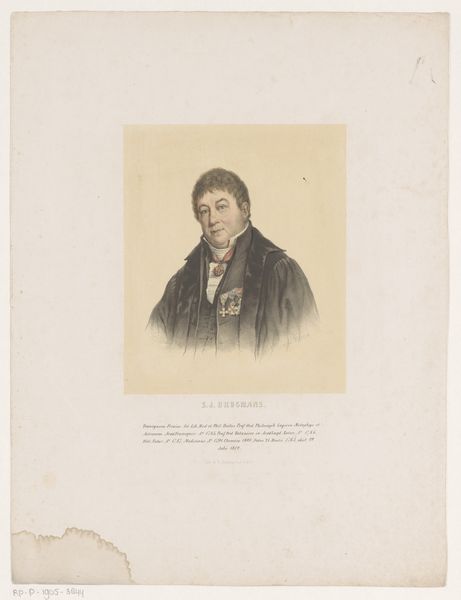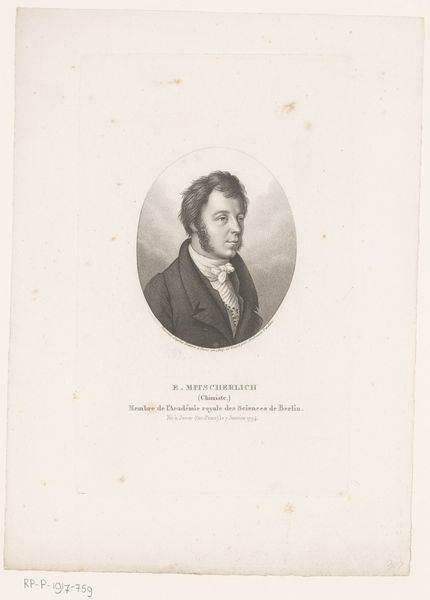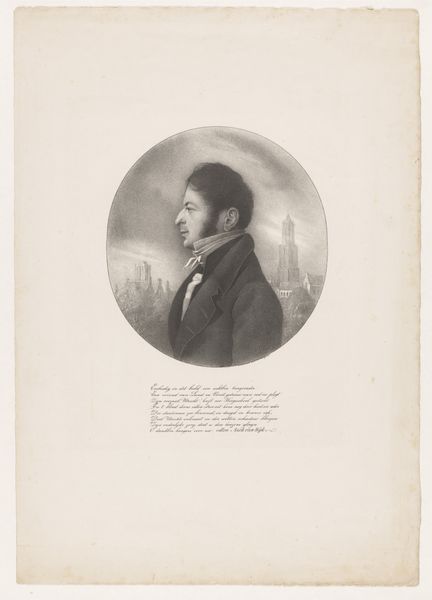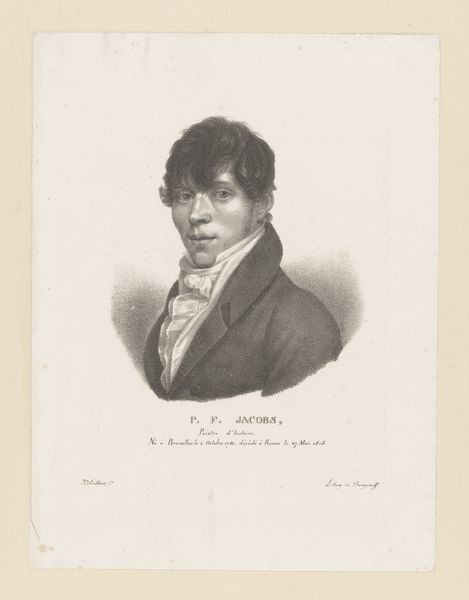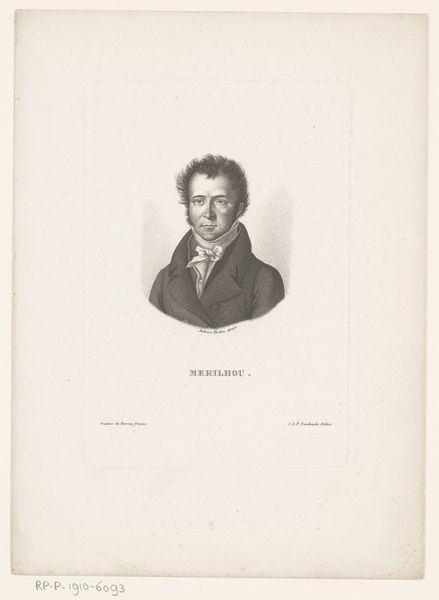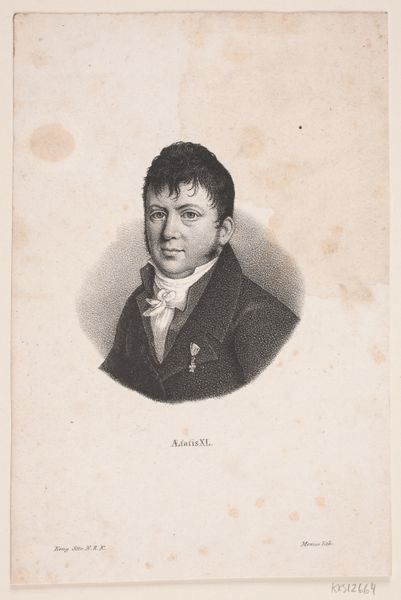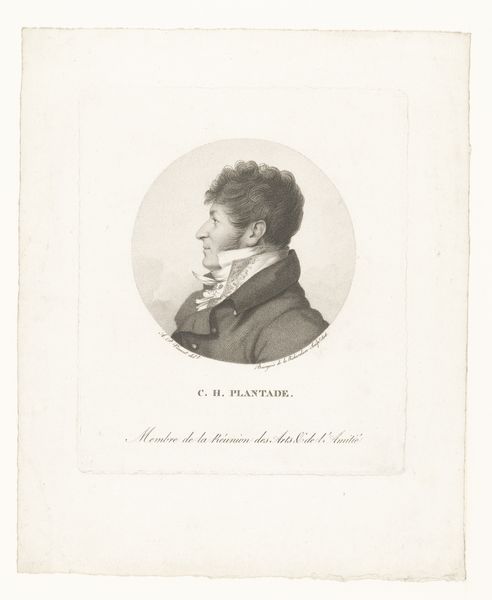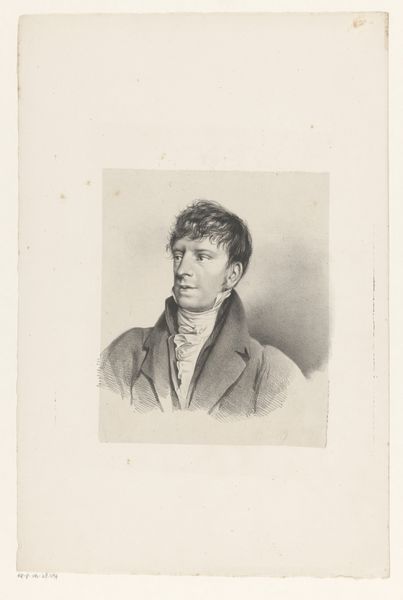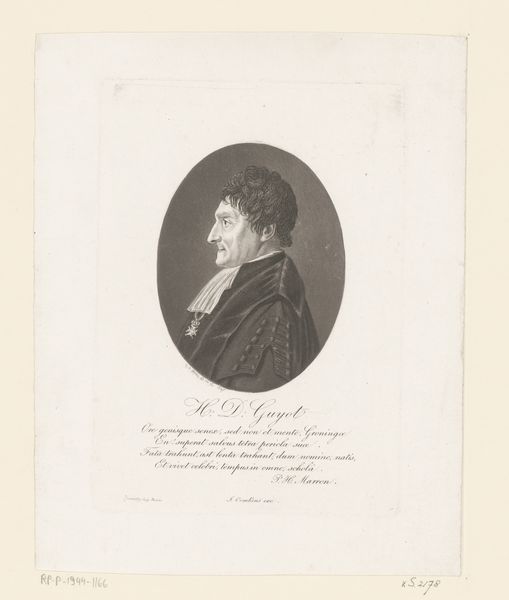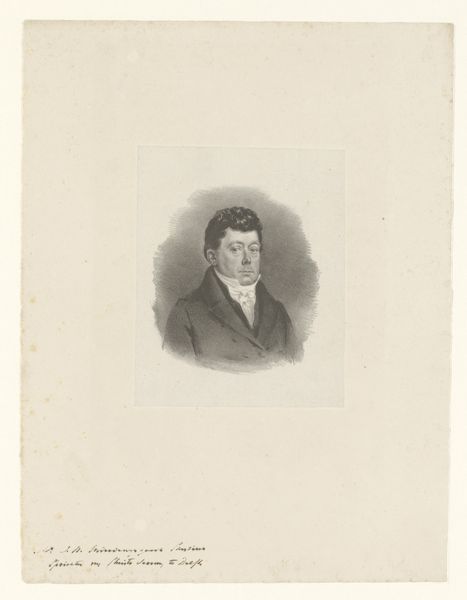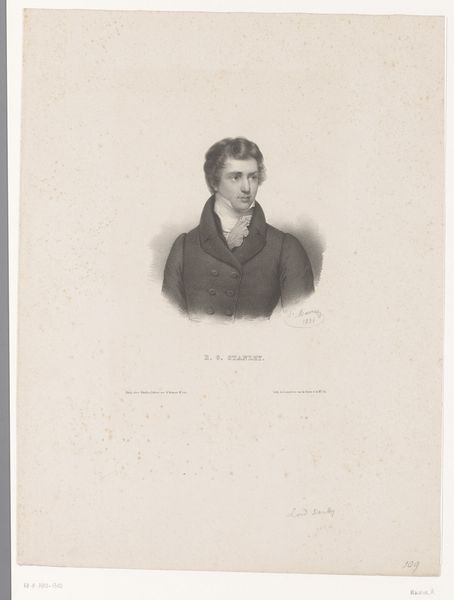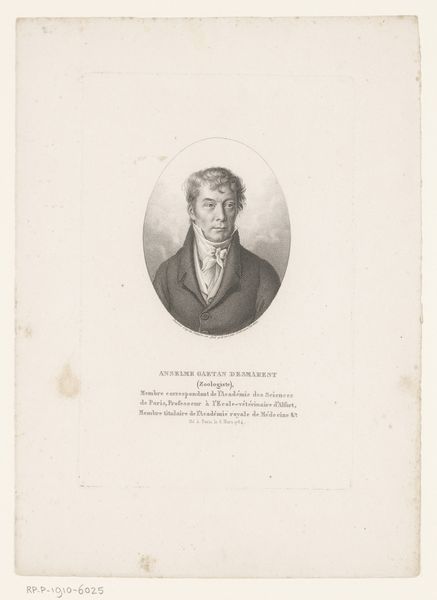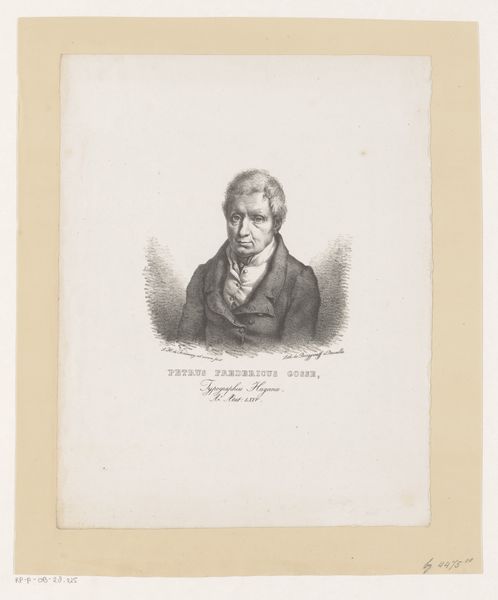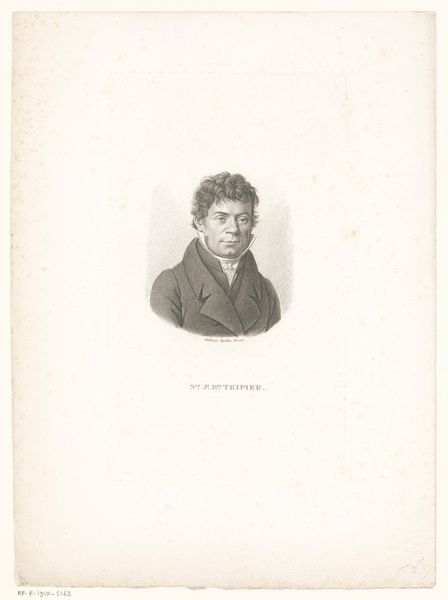
print, engraving
#
portrait
# print
#
romanticism
#
engraving
#
realism
Dimensions: height 375 mm, width 270 mm, height 425 mm, width 311 mm
Copyright: Rijks Museum: Open Domain
Here we have a portrait of Willem Terpstra, created by Huib van Hove Bz, from around 1826. This portrait offers a glimpse into the world of 19th-century Dutch society. During this time, the Netherlands was navigating a period of rebuilding and redefining its national identity after French rule. Portraits like these served as a means to immortalize individuals and reinforce social hierarchies. As you gaze at Terpstra's face, consider the role of portraiture in shaping perceptions of status and power. Who was deemed worthy of being remembered? And how did artists like van Hove navigate the expectations of their patrons while also expressing their own artistic vision? Portraits could also serve as powerful tools for constructing and reinforcing gender roles and social expectations. What can you tell about the gender of the sitter? Note how the subject of the portrait is always a man. This portrait reminds us that art is never created in a vacuum. It is deeply intertwined with the social, political, and cultural forces of its time.
Comments
No comments
Be the first to comment and join the conversation on the ultimate creative platform.
